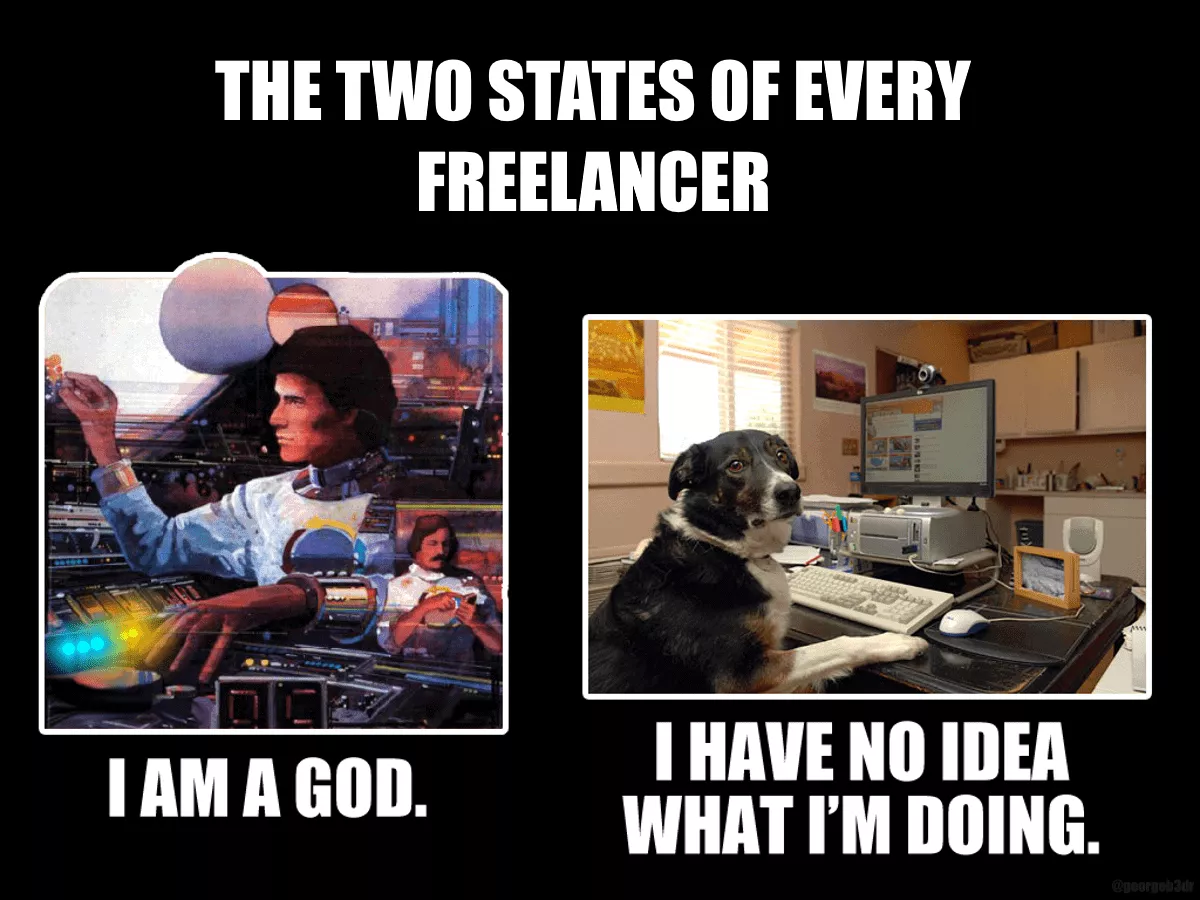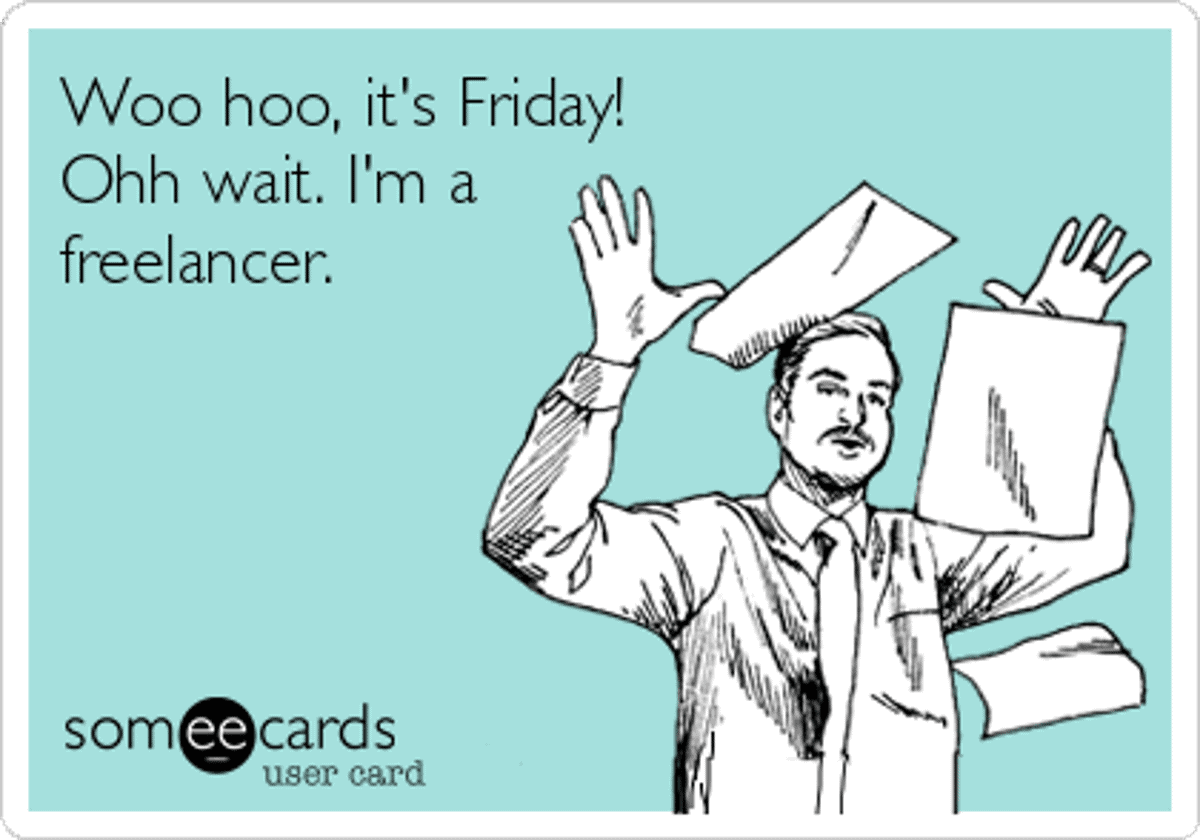
What’s a hallmark for any outstanding freelancer?
Obviously, it’s the ability to deliver outstanding services to their clients. But there is a key aspect needed to be able to do it consistently.
The key is effective communication.
By being able to effectively communicate with clients, freelancers can reduce the risk of misunderstandings and help projects progress smoothly.
It also means that you’re able to pitch ideas, give and receive feedback, and convert more clients. Mastering this soft skill gives freelancers a huge competitive advantage.
However, honing this soft skill is often overlooked. That’s why we’ve brought you 5 surefire tips to help you develop crystal clear communicating abilities to supercharge your career growth.
Before starting a contract, read the project description and think of how your services can best serve the client. Actively listen to the client’s needs and keep a checklist of it.
Consider the fact you’re an expert on the problem. You’re there to provide a long term solution for the client instead of slapping a band-aid on it and calling it fixed.
With the clients needs in mind identify your…
Once you’ve worked that all out, draft it out in your proposal and discuss it with your client through email, chat or a video call interview. Once an agreement has been reached, finalize the information in your contract.
When you’re talking to a client, you need to keep the communication professional, even if the clients are friends of yours. Keeping it profesh means you’re able to convey your expertise and confidence in your own abilities.
For example, I do have some clients that I know well on a personal basis, and things are less formal with them. However, in most cases, when we’re discussing a new project or negotiating prices, or doing any form of business, the communication becomes more professional — even if we’ve been out for drinks together.
By being professional, I mean…
Maintaining a professional tone can be very helpful in establishing that you’re, well, a professional. Plus, speaking with the confidence of an expert also means you’re emphasising the value of your work rather than your prices.
The better you are at remaining professional, the more credibility you have as a freelancer.

One of the biggest mistakes a freelancer could make is not being confident in knowing what the task that’s been briefed actually is.
As a freelancer, you are not just a writer or a coder or designer etc, you’re also a project manager, finance manager, negotiator and boss. You’re doing a team’s worth of work alone.
You might not know the ins-and-outs of your client’s business — and that means finding out as much information as possible is crucial in order to produce the high quality of work that is expected.
Asking the right questions will show professionalism and initiative at handling the task. So if you are confused about a meeting or need clarification on a client’s idea, make sure you ask for the right answers instead of assuming them.
Because of the nature of our work, we might end up with completely different work availability to our clients. E.g., working with clients from different time zones or having time constraints due to multiple contracts.
This can sometimes make it trickier for freelancers to communicate with clients. The best thing to do is to consciously maintain regular contact.
This means sending project status updates when appropriate, sending emails to set deadlines for each task and never giving them cause to fear you’ll go MIA in the project.

Realistically, when you have multiple contracts, keeping track of all your clients can be daunting. Updating them might even slip your mind.
To make things infinitely easier for you, consider using a time management tool for freelancers.
There are free ones such as TopTracker or Rescue Time that offer basic functions. You can also opt to invest in paid ones that have more functions available such as Harvest or Toggl.
From being able to discuss a project with a distant client to brainstorming ideas with a team — proper use of Zoom and Skype is one of the most effective ways for a freelancer to communicate effectively with clients.
For longer projects, arranging regular virtual meetings with the client to discuss the project can really help move projects forward with everyone on the same page, and reduce misunderstandings. Brainstorming sessions can spout more creative ideas.
If it’s a shorter project, you may still benefit from an occasional or one-off check-in. This can serve to get everyone on the same page, and further clarification can be done through writing.
Plus, it’s humanising to see the face behind the name and can be a powerful tool for building a longer-term client relationship.
Communication through video calls are quicker, but with the potential for things to be forgotten after the call. This is why it’s important for you to write down notes during the call.
Once the call is over, go ahead and review those notes. Send the client a quick email or Slack message with the evidence of your discussion and establishing the key aspects of the outcome means that you can ensure both parties are on the same page.
A general rule of thumb is to always follow up an oral meeting with a written confirmation.
Freelancers are hired when clients have a specific problem they can’t solve themselves. In that regard, you need to remember that they might lack the expertise to fully understand the reasons or requirements for your actions in the project.
In order to be clear and concise, you have to:
As well as speaking clear and concisely, you also need to be able to write that way too. Your emails should not have long run on sentences nor too many difficult industry specific jargon. Of course, spelling mistakes on a business email is a big no-no as it can discredit you as a professional.
Luckily, there are apps such as Grammarly that can help you with this. It’ll function as your own personal spellchecker to help you curate a concise, professional email without any grammar or spelling errors.
Freelancers can overcome many project obstacles and nurture stronger relationships with their clients by establishing better communication.
Ideally, to do this, freelancers must speak professionally, be transparent in their conversations and make full use of virtual communication options.
However, different clients have different communication styles and freelancers must need to know how to adapt for each. Some clients prefer verbal communication, some prefer oral. There are clients who expect regular updates and some that prefer less communication.
It’s up to you to figure out how you will be approaching each specific client. As long as you’re keeping these tips in mind, you won’t go wrong!
On a final note, again, ALWAYS follow up an oral meeting in writing.
David is a content creator and freelancer. His journey started with writing songs, poetry and academic dissertations in Vancouver. David has freelanced for multiple companies around the world. Feel free to connect with him on LinkedIn.